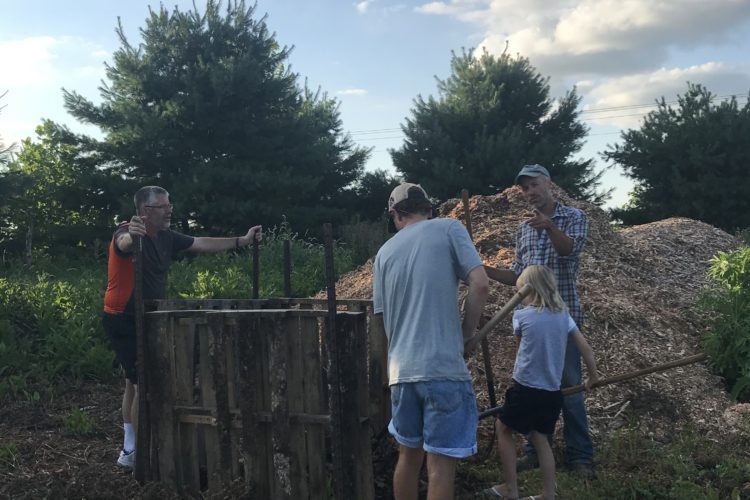Do you know what happens to your food? This was a guiding question at the composting workshop led by Andy Dunham of Grinnell Heritage Farm on Monday, July 16. “Our goal is to improve food literacy,” Andy said. “That means knowing what happens to your food at every step of the way.”
Composting is an important step in the food process. With the help of workshop attendees and his youngest daughter Leo, Andy demonstrated how quickly one can compose a backyard compost. Using just metal posts and some pallets, the group made a compost in less than 20 minutes: complete with dried leaves as brown materials and food scraps left over from Heritage Farms past pizza night as green material.
A common problem faced by backyard compost advocates is having enough brown matter to sustain a compost. One way to combat this is to save your dead leaves, keeping them stored and dry. Shredded paper, cardboard, coffee filters, sawdust or wood chips can also be good sources of brown matter. Check out this handout for more information on your compost.
To learn more about the process your food goes through before ending up on your plate, Andy suggests reading Food Rules: An Eater’s Manual by Michael Pollan or Food Politics by Marion Nestle. You can also learn more about sustainable agriculture on GreenAmerica.org under “food.”








